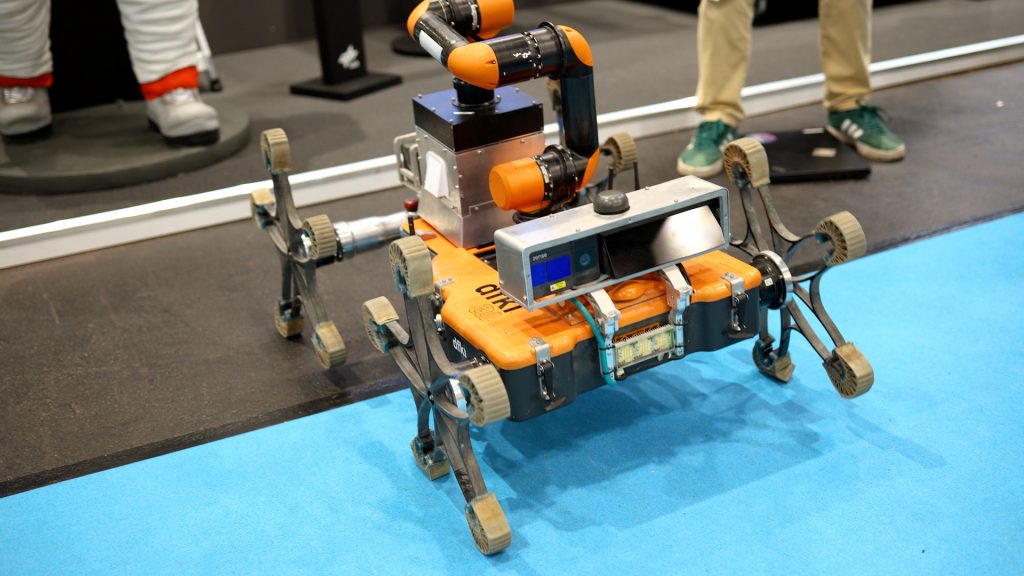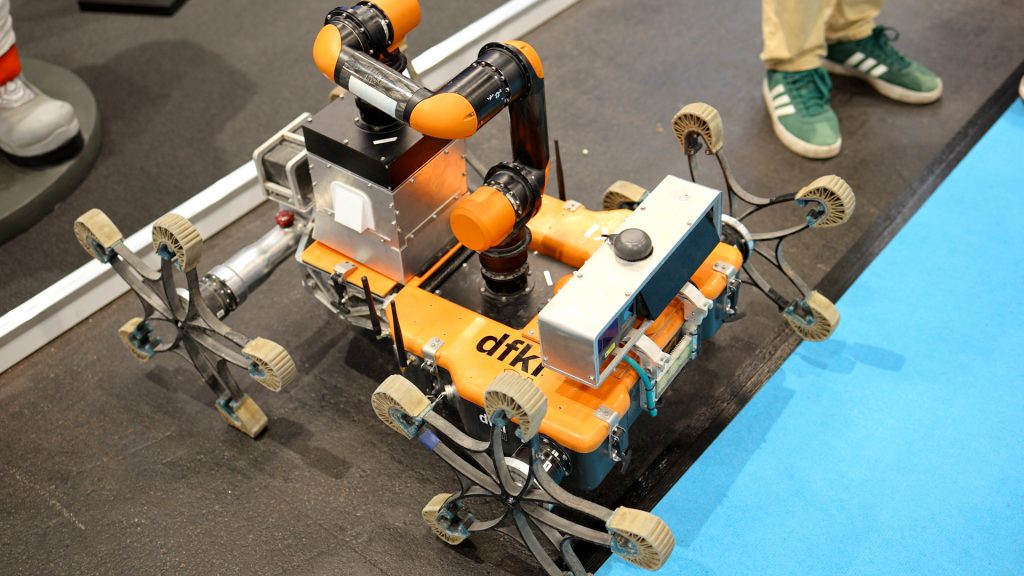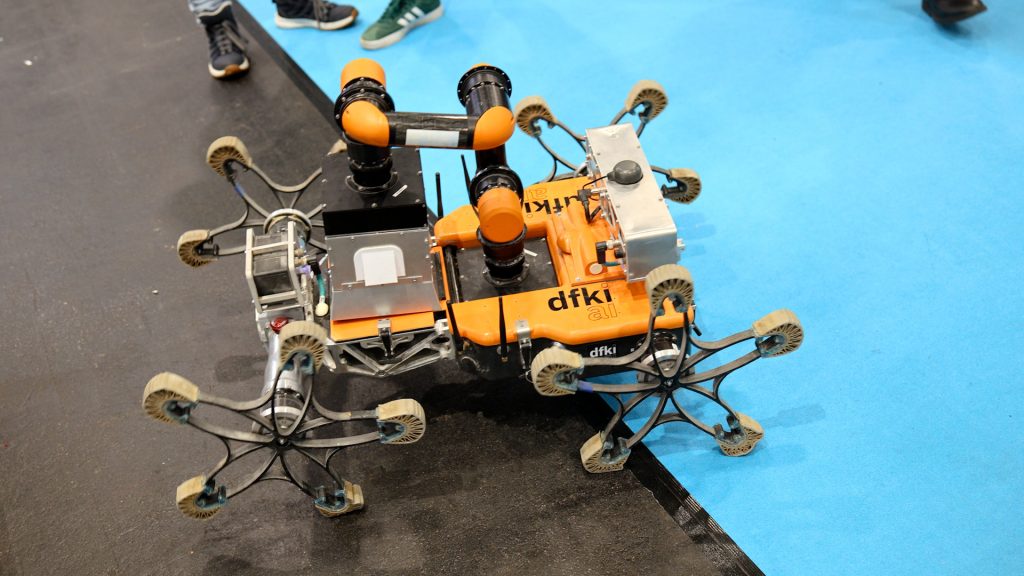Planetary Exploration Robotics - Coyote III and AI Swarms from DFKI and University of Bremen
Exploring the Moon and Mars exposes robotic systems to extreme conditions: rough terrain, dust, steep slopes and long operation times without maintenance. Looking back at Space Tech Expo Europe 2024 in Bremen, one exhibit illustrates these challenges particularly well: the Coyote III rover from the DFKI Robotics Innovation Center in collaboration with the University of Bremen.
In our conversation with Raúl Dominguez, M.Sc. and Amrita Suresh, M.Sc., it became clear how mechanical innovation, artificial intelligence and system architecture work hand in hand to enable future missions on solid celestial bodies.
Coyote III - Hybrid mobility for unstructured terrain
The Coyote III rover is a modular space exploration platform designed for high mobility in unstructured terrain. Its most striking feature is a hybrid wheel-leg concept, where star shaped wheels with several "legs" are combined in one drive system.
This design allows the rover to overcome obstacles, climb steps and move safely even on loose soil. Exactly these capabilities are required when future lander missions need to investigate rock samples, map resources or support the setup of infrastructure on planetary surfaces.
Today, Coyote III is used in the Persim project. Raúl Domingez summarizes the goal of the project in a single sentence:
"The objective of the project is to find resources on planetary surfaces for sustainable space exploration."
Rovers like Coyote III are therefore not only demonstrators for new locomotion concepts, but also important building blocks for a long term robotic presence on other celestial bodies.



Robotics research in Bremen - from exoskeletons to underwater systems
The Robotics Innovation Center of the German Research Center for Artificial Intelligence (DFKI) in Bremen is working on a broad spectrum of robotic systems. The research ranges from walking robots and humanoid platforms to exoskeletons, underwater robotics and special solutions for extreme environments.
Together with the University of Bremen, the teams develop technologies that can later be used in space missions, maritime applications or industrial environments. Many of the systems are modular so that different missions and payloads can be supported with the same basic platform.
Swarm robotics - AI for teams of exploration robots
Beside a single rover, the interaction of multiple systems plays a central role. Amrita Suresh, M.Sc., works in the field of swarm robotics and describes the approach as follows:
"In swarm robotics, we try to apply AI to a team of robots to explore different planets, such as Mars, and gather planetary information so that humans can one day colonize Mars."
Instead of controlling one large rover, many smaller units are deployed that coordinate with each other, share information and distribute tasks. Intelligent algorithms help to identify regions of interest, collect data efficiently and at the same time reduce the risk that the failure of a single robot will affect the whole mission.
Such swarm concepts could in the future be used to survey landing sites, map resource fields or prepare the setup of infrastructure long before human missions arrive.
Requirements for electronics and components
Systems like Coyote III and swarm robots for planetary missions place very high demands on electronics and components. Sensors for navigation and terrain perception, robust processing units, powerful drive control, communication interfaces and power management all need to operate reliably under vacuum, temperature cycles and radiation.
This is where the portfolio of MSA Components and Hi-Rel Solutions by Steliau Technology comes in. Space qualified memory, sensors, connectors, power electronics and other hi rel components provide the foundation for innovative robotic systems to reach the proven reliability levels required by research institutions and space agencies.
Looking ahead to Space Tech Expo Europe 2025
The interview with Raúl Domingez and Amrita Suresh was recorded during Space Tech Expo Europe 2024 in Bremen and underlines how strong the Bremen region has become in the field of space robotics.
MSA Components is looking forward to continuing these discussions at Space Tech Expo Europe 2025 and to exploring together with research institutes and industry how reliable electronics can support future exploration missions to the Moon and Mars.
DFKI is short for Deutsches Forschungszentrum für Künstliche Intelligenz GmbH.
Note for visitors: Our team will be on site at Booth F11, together with our partners 3D PLUS, Omnetics, and Exxelia.

